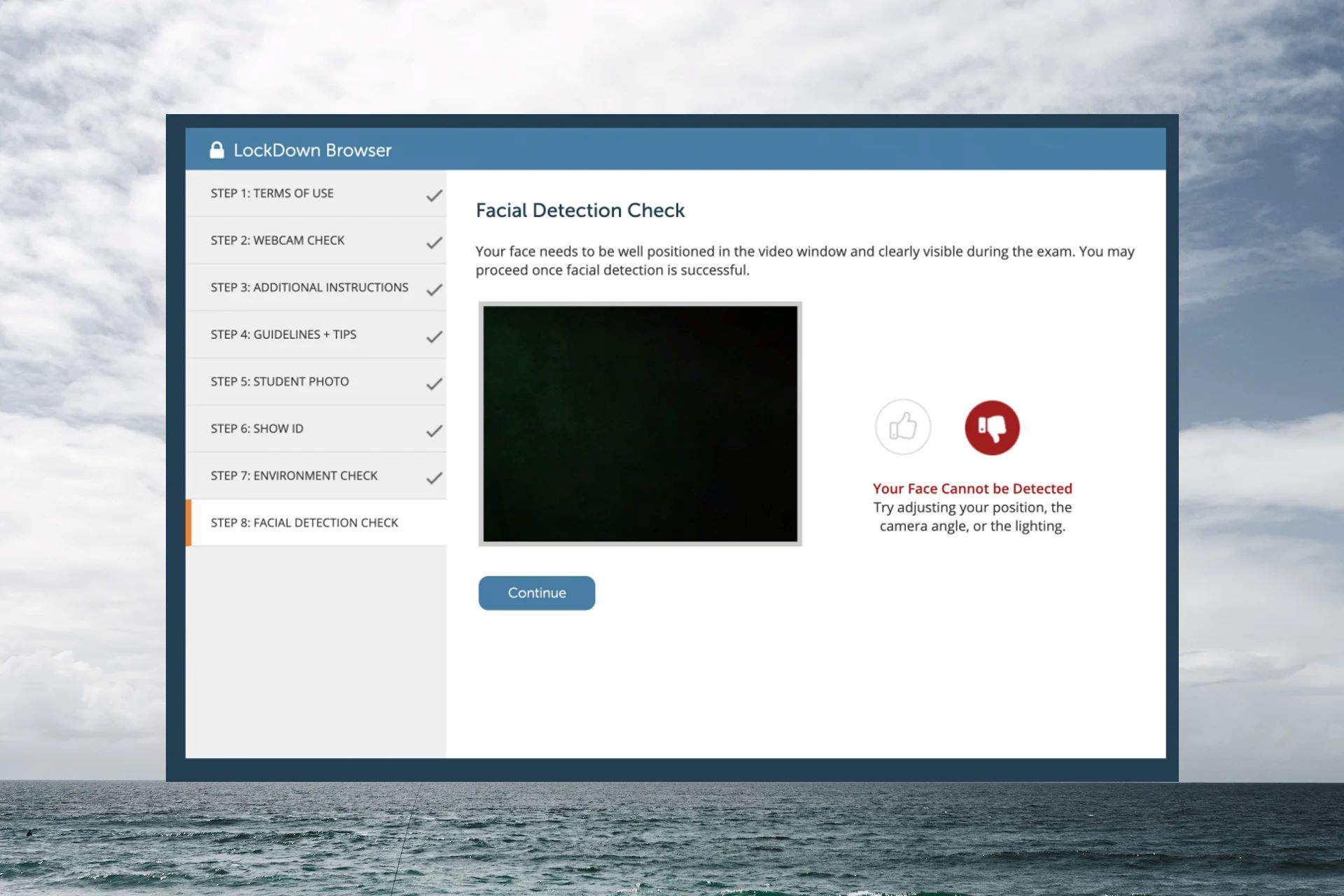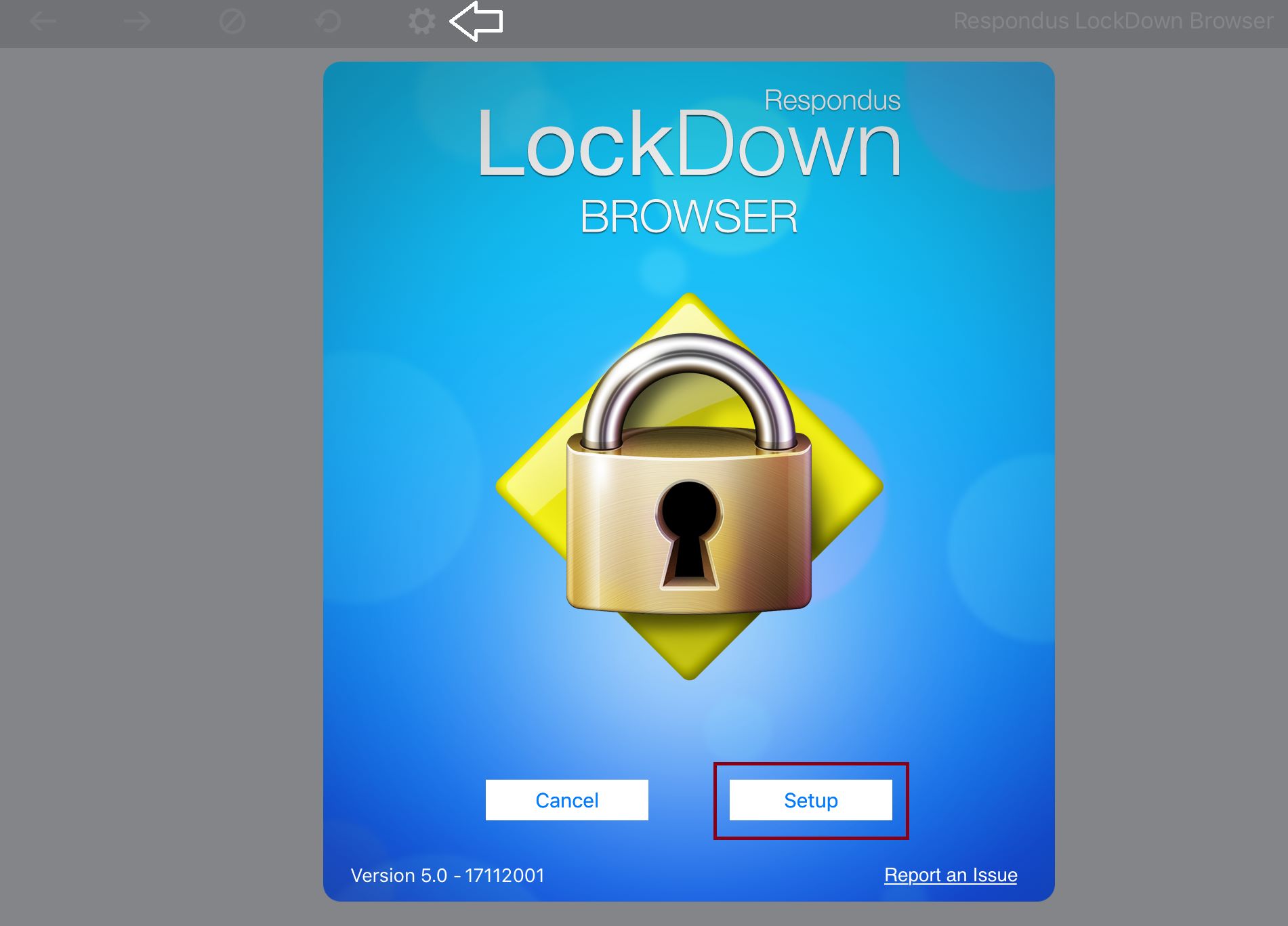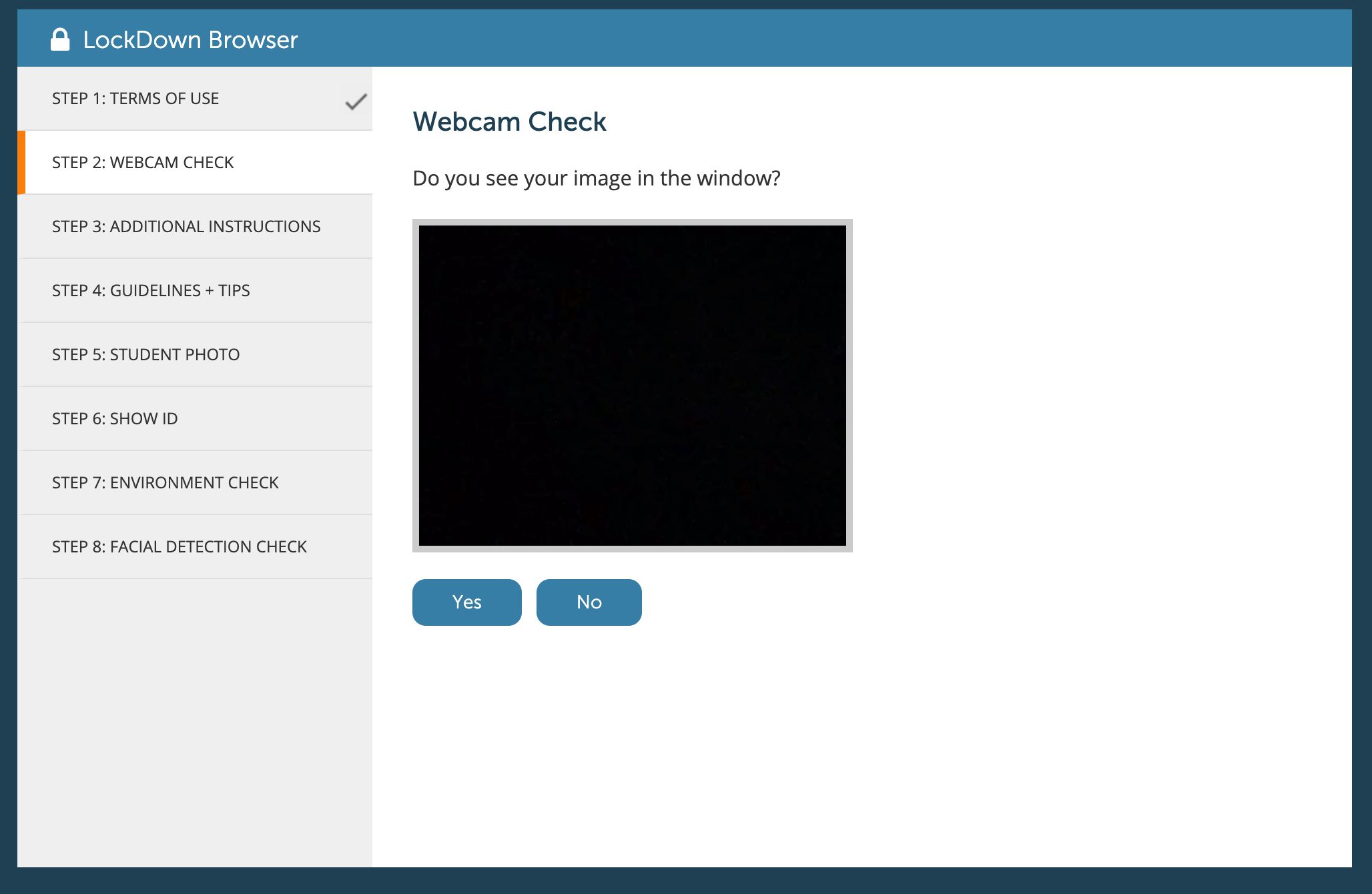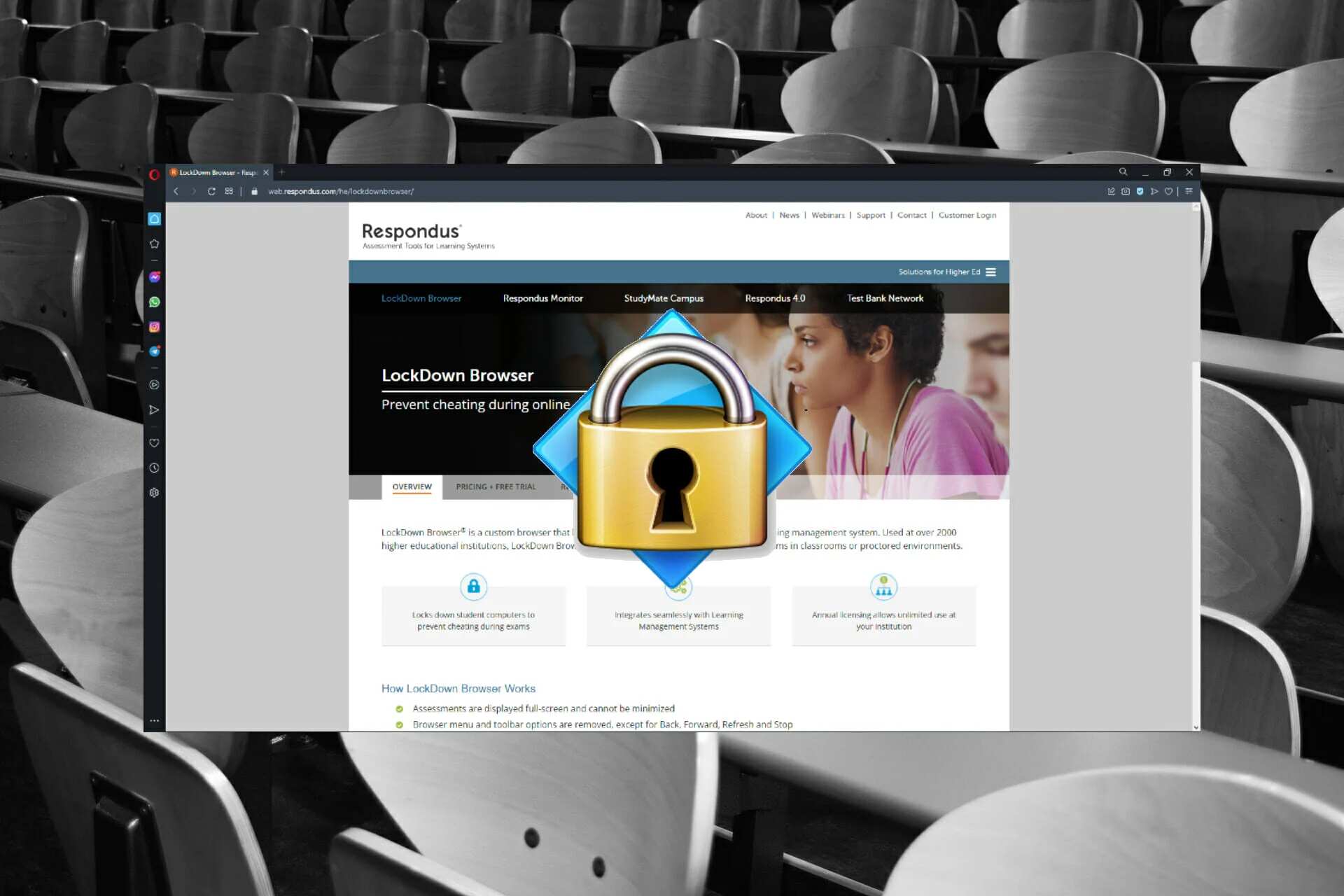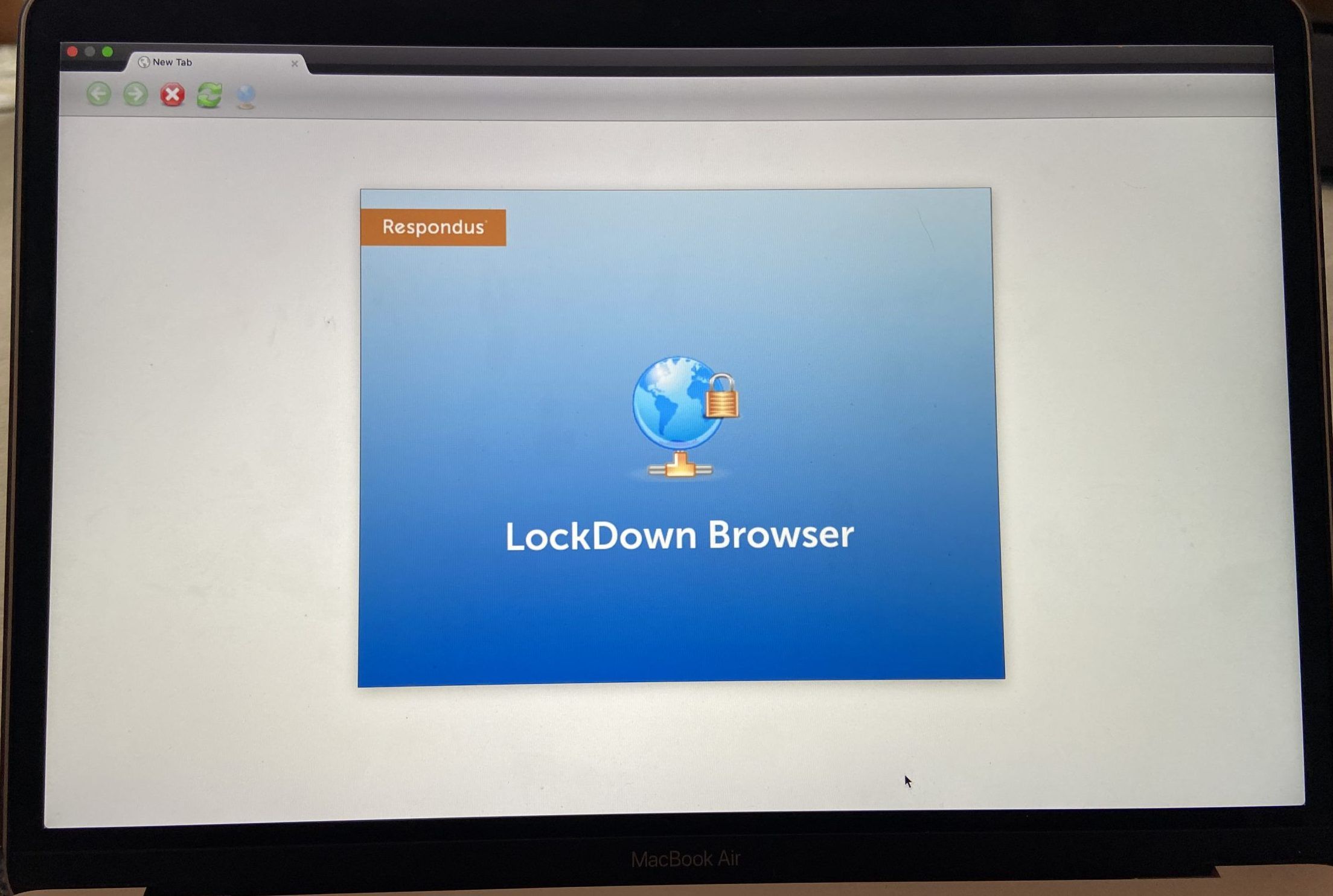Introduction
Respondus Lockdown Browser is a powerful tool designed to maintain the integrity of online exams by preventing students from accessing unauthorized resources during the assessment. This specialized browser restricts the user's ability to open additional tabs, navigate to other websites, or use applications while the exam is in progress. It also disables copying, printing, and taking screenshots to prevent any form of academic dishonesty.
As the popularity of online learning continues to soar, educational institutions are increasingly relying on Respondus Lockdown Browser to ensure fair and secure assessment environments. While the software serves as a safeguard against cheating, some students may attempt to circumvent its restrictions using various methods. Understanding the capabilities of Respondus Lockdown Browser and the potential consequences of cheating is essential for both educators and students.
In this article, we will delve into the functionalities of Respondus Lockdown Browser, explore common methods students use to cheat while using the browser, and discuss advanced techniques that some individuals employ to bypass its security measures. Additionally, we will shed light on the potential repercussions of attempting to cheat with Respondus Lockdown Browser.
By gaining a comprehensive understanding of these aspects, educators can better anticipate and prevent cheating attempts, while students can comprehend the futility and risks associated with dishonest behavior during online assessments. Let's embark on this insightful journey to uncover the intricacies of Respondus Lockdown Browser and the challenges it poses to academic integrity.
Understanding Respondus Lockdown Browser
Respondus Lockdown Browser is a specialized web browser that restricts a student's ability to engage in activities that could compromise the integrity of online exams. When a student launches an exam through Respondus Lockdown Browser, the software locks down the computer's functionality, preventing the user from accessing external websites, applications, or resources during the assessment. This ensures that the student remains focused solely on the exam content without the ability to seek external assistance.
The browser's comprehensive security features disable the use of keyboard shortcuts, right-click options, and printing capabilities, effectively preventing the student from copying, pasting, or printing any part of the exam content. Additionally, the software prohibits the opening of additional tabs or windows, eliminating the possibility of navigating to unauthorized websites or resources.
Respondus Lockdown Browser also incorporates webcam and microphone monitoring to deter any form of misconduct during the exam. This feature allows instructors to observe the student's behavior and surroundings, ensuring compliance with academic integrity standards.
Furthermore, the browser's lockdown capabilities extend to preventing the use of virtual machines and remote desktop applications, thereby minimizing the potential for circumventing its security measures.
In essence, Respondus Lockdown Browser serves as a robust tool for maintaining the sanctity of online assessments. By creating a controlled environment that limits access to external resources and monitors student activity, the software aims to uphold academic honesty and fairness in online learning environments.
Educators and institutions leverage Respondus Lockdown Browser to administer secure online exams, confident in the knowledge that the software provides a level playing field for all students while deterring dishonest behavior. Understanding the capabilities and limitations of this specialized browser is crucial for both educators and students, as it underscores the significance of academic integrity in the digital learning landscape.
Common Ways to Cheat with Respondus Lockdown Browser
Despite the robust security measures implemented by Respondus Lockdown Browser, some students may attempt to circumvent its restrictions using various methods. While these attempts are unethical and can have serious consequences, it's important to understand the common ways in which students may try to cheat while using the browser.
-
Using Multiple Devices: Some students may try to use a secondary device, such as a smartphone or tablet, to access external resources while the exam is in progress. By utilizing a separate device, they aim to bypass the restrictions imposed by Respondus Lockdown Browser and seek unauthorized assistance.
-
Collaborating with Peers: Another common cheating method involves collaborating with peers during the exam. Students may communicate with each other through messaging apps, phone calls, or other means to share answers or seek assistance, thereby undermining the integrity of the assessment.
-
Pre-Recorded Responses: In an attempt to deceive the system, some students may pre-record their responses to exam questions and play them back during the assessment. This method aims to create the illusion of real-time responses while actually relying on pre-prepared content.
-
Using Virtual Machines or Emulators: Certain tech-savvy individuals may attempt to run Respondus Lockdown Browser within a virtual machine or emulator, allowing them to access external resources on the host machine while appearing to comply with the browser's restrictions.
-
Employing Screen Mirroring or Sharing: Students may use screen mirroring or sharing applications to display the exam content on a secondary device, enabling others to view and provide assistance with the assessment.
-
Manipulating Webcam and Microphone: In some cases, students may attempt to manipulate the webcam or microphone monitoring features of Respondus Lockdown Browser to conceal unauthorized activities or communication with external sources.
It's important to note that engaging in any form of cheating during online assessments undermines the principles of academic integrity and can lead to severe consequences. Educators and institutions are continuously vigilant against such attempts and employ various measures to detect and deter dishonest behavior.
By understanding the common ways in which students may try to cheat with Respondus Lockdown Browser, educators can proactively address these challenges and reinforce the importance of ethical conduct during online assessments. Additionally, fostering a culture of academic honesty and integrity within educational institutions is essential for upholding the credibility and value of online learning experiences.
Advanced Techniques to Bypass Respondus Lockdown Browser
In addition to common methods of cheating, some individuals may employ advanced techniques to bypass the security measures of Respondus Lockdown Browser. These sophisticated tactics often require technical expertise and a deep understanding of computer systems. While it is crucial to emphasize that engaging in such activities is unethical and can result in severe academic consequences, it is important to shed light on these advanced techniques to raise awareness among educators and students.
1. Virtual Machine Detection Evasion
Advanced users may attempt to evade Respondus Lockdown Browser's detection of virtual machines by employing complex methods to conceal the presence of virtualization software. This can involve modifying system settings, manipulating registry entries, or utilizing specialized tools designed to obfuscate the virtual environment. By evading virtual machine detection, individuals seek to access external resources on the host machine while appearing to comply with the browser's restrictions.
2. Kernel-Level Manipulation
Some technically proficient individuals may explore kernel-level manipulation techniques to bypass the security mechanisms of Respondus Lockdown Browser. This involves altering the behavior of the operating system at a fundamental level to circumvent the browser's restrictions and gain unauthorized access to resources. Kernel-level manipulation requires a deep understanding of system architecture and poses significant risks to the stability and security of the operating environment.
3. Network Protocol Exploitation
Advanced users may attempt to exploit network protocols to bypass Respondus Lockdown Browser's restrictions. This can involve intercepting and manipulating network traffic to circumvent the browser's communication with remote servers, thereby evading its security checks. By exploiting network protocols, individuals aim to gain unrestricted access to external resources while appearing to comply with the browser's limitations.
4. Dynamic Memory Manipulation
Sophisticated individuals may explore techniques involving dynamic memory manipulation to alter the behavior of Respondus Lockdown Browser while an exam is in progress. This can include injecting code into the browser's memory space, modifying runtime data structures, or manipulating memory contents to bypass security checks. Dynamic memory manipulation requires advanced programming skills and a deep understanding of memory management principles.
It is important to emphasize that attempting to bypass Respondus Lockdown Browser's security measures through advanced techniques is not only unethical but also violates academic integrity standards. Educational institutions and assessment providers continually enhance their security measures to detect and prevent such activities, underscoring the futility and risks associated with dishonest behavior during online assessments. By understanding these advanced techniques, educators can better anticipate and address potential security vulnerabilities, thereby upholding the integrity of online learning environments.
Consequences of Cheating with Respondus Lockdown Browser
Engaging in dishonest behavior while using Respondus Lockdown Browser can have profound and far-reaching consequences, impacting not only the academic standing of the individuals involved but also the integrity of the educational institution. It is imperative to comprehend the potential repercussions of cheating with Respondus Lockdown Browser, as they underscore the gravity of academic dishonesty in online learning environments.
Academic Disciplinary Actions
Students found to be cheating with Respondus Lockdown Browser may face severe academic disciplinary actions, including but not limited to failing the exam, failing the course, academic probation, suspension, or even expulsion from the institution. These consequences can have detrimental effects on the individual's academic record, future educational pursuits, and professional opportunities.
Damage to Academic Reputation
Instances of cheating with Respondus Lockdown Browser can tarnish the reputation of the educational institution, casting doubt on the integrity of its assessment processes and academic standards. Such incidents may erode the trust and credibility that students, faculty, and external stakeholders place in the institution, potentially impacting its standing within the academic community.
Legal Ramifications
In some cases, cheating with Respondus Lockdown Browser may lead to legal implications, especially if the dishonest behavior violates academic integrity policies or contractual agreements between the student and the institution. Legal actions, including civil litigation or legal sanctions, could be pursued, further exacerbating the consequences of unethical conduct.
Ethical and Professional Ramifications
Cheating with Respondus Lockdown Browser undermines the principles of academic integrity and ethical conduct, raising concerns about the individual's character and integrity. Such behavior can also have implications for future professional endeavors, as employers and professional organizations value ethical behavior and may view academic dishonesty unfavorably.
Long-Term Repercussions
The repercussions of cheating with Respondus Lockdown Browser can extend beyond the immediate academic context, impacting the individual's long-term academic and professional trajectory. A record of academic dishonesty can hinder future educational pursuits, career opportunities, and professional licensure, creating enduring obstacles for the individual.
In summary, the consequences of cheating with Respondus Lockdown Browser are multifaceted and significant, encompassing academic, ethical, legal, and long-term ramifications. It is essential for students to recognize the gravity of academic dishonesty and for educational institutions to uphold rigorous standards of integrity to preserve the credibility and value of online learning experiences.
Conclusion
In conclusion, Respondus Lockdown Browser stands as a formidable tool in upholding the integrity of online assessments, creating a controlled environment that mitigates the risk of academic dishonesty. While the browser's robust security features serve to maintain fairness and academic rigor, it is essential for both educators and students to comprehend the implications of attempting to cheat with Respondus Lockdown Browser.
By understanding the functionalities and limitations of Respondus Lockdown Browser, educators can proactively address potential cheating attempts and reinforce the importance of ethical conduct during online assessments. Moreover, fostering a culture of academic honesty within educational institutions is paramount in preserving the credibility and value of online learning experiences.
For students, recognizing the futility and risks associated with dishonest behavior during online assessments is crucial. The potential consequences of cheating with Respondus Lockdown Browser, including severe academic disciplinary actions, damage to academic reputation, legal implications, ethical and professional ramifications, and long-term repercussions, underscore the gravity of academic dishonesty in online learning environments.
It is imperative for students to uphold the principles of academic integrity, demonstrating ethical conduct and a commitment to fair and honest assessment practices. By embracing these values, students contribute to the preservation of academic standards and the credibility of their educational achievements.
Educators and institutions must continue to enhance their vigilance and security measures to detect and deter cheating attempts, ensuring that online assessments remain a fair and equitable platform for evaluating student learning. By fostering a culture of academic integrity and leveraging technology to uphold ethical standards, educational institutions can create an environment that promotes honesty, fairness, and the pursuit of knowledge.
As online learning continues to evolve, the commitment to academic integrity remains paramount. Respondus Lockdown Browser serves as a cornerstone in this endeavor, providing a secure and controlled assessment environment that upholds the principles of fairness and academic rigor. Through a collective dedication to ethical conduct and integrity, educators and students can fortify the value of online learning experiences, fostering an environment where academic achievement is synonymous with integrity and excellence.









